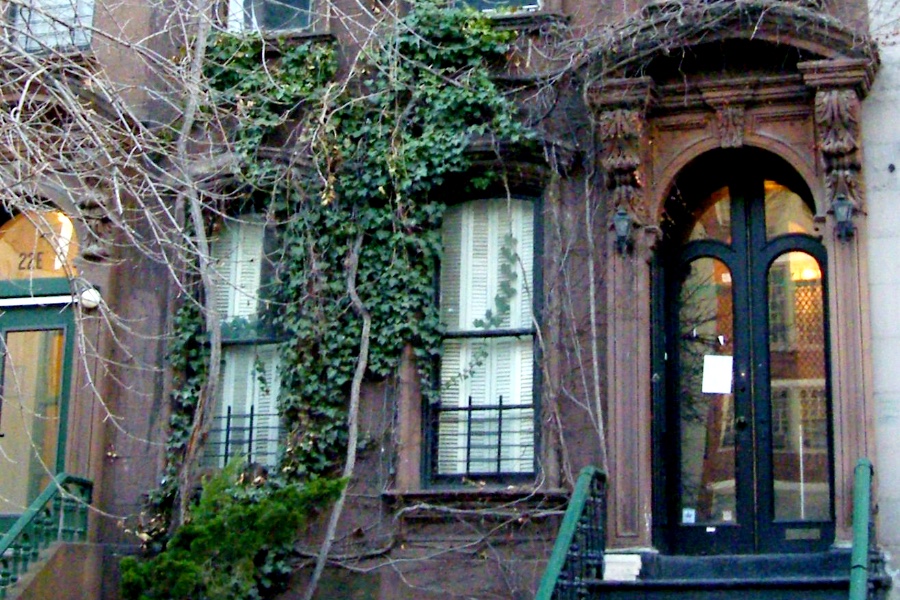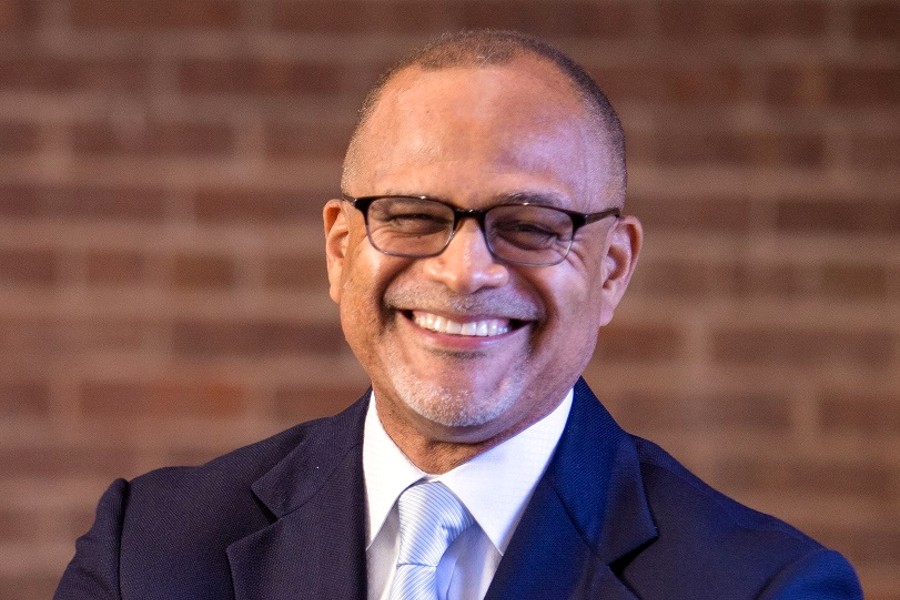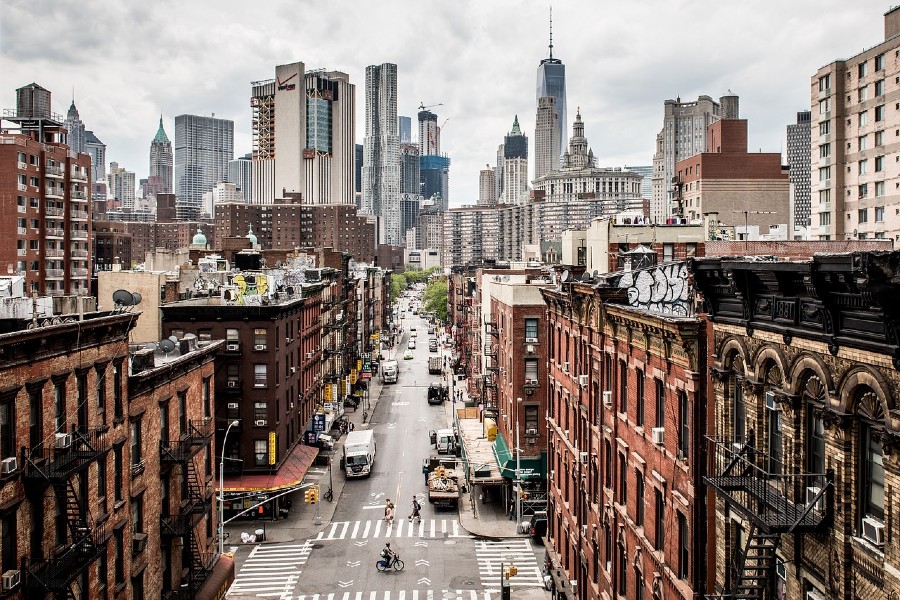
New York City Mayor Eric Adams and NYC Department of City Planning (DCP) Director and City Planning Commission (CPC) Chair Dan Garodnick today unveiled the “Green Fast Track”.
A streamlined environmental review process to accelerate the production of small- and medium-sized housing projects across New York City. A major initiative of the administration’s “Get Stuff Built” plan to create more housing by cutting red tape, streamlining processes, and removing bureaucratic obstacles, the Green Fast Track will help achieve the city’s housing and climate goals by making it easier for modest, climate-friendly housing projects to proceed through environmental review.
“The solution to our housing crisis is simple: We must build more,” said Mayor Adams. “Our administration has been relentless in its pursuit of new tools to speed up the production of housing — and to build that housing in a smarter, faster, and more sustainable way. The Green Fast Track will deliver more homes to more New Yorkers while encouraging greener homes — a true win-win.”
“Our city is facing two monumental challenges — the climate crisis and the housing crisis — and the Green Fast Track will help us address both,” said Deputy Mayor for Housing, Economic Development, and Workforce Maria Torres-Springer. “By creating a streamlined process for climate-friendly housing, we are delivering more housing, building faster, and saving money.”
“The Green Fast Track will help us address two simultaneous crises: affordability and climate change,” said Deputy Mayor of Operations Meera Joshi. “We desperately need modestly sized housing developments centering green building techniques to sustain our city. So we are cutting the red tape, delivering good, green housing to New York’s families, and incentivizing more — in a virtuous cycle that will help make meaningful progress on the issues New Yorkers care about most.”
“We are going to meaningfully speed up the review process for proposals that are good for both housing affordability and the climate,” said DCP Director and CPC Chair Garodnick. “This change will save valuable time and money to deliver homes for New Yorkers, while maintaining important environmental safeguards.”
“There is a clear record of hundreds of past housing projects that have gone through an eight-to-12-month review process that have not raised issues of concern,” said “Get Stuff Built” Executive Director Rob Holbrook. “We can show that a category of housing projects is small enough not to cause environmental impacts. We must stop wasting their time filing paperwork that does not contribute to environmental protection or public engagement.”
In exploring the potential for a Green Fast Track, city planning and environmental experts analyzed more than 1,000 environmental reviews over the last decade, consistently finding that modest housing projects with certain characteristics had no negative impacts on the environment. By shifting these projects onto the Green Fast Track — designating them as “Type II” actions under the City Environmental Quality Review process — the city will reduce redundant or unnecessary processes for projects of a certain size and speed up environmental review by as much as 24 months, saving each project an average of $100,000 and quickly delivering urgently needed housing. By adjusting eligibility requirements to include sustainability measures — such as all-electric heating — the city can also leverage the environmental review process to accelerate its climate goals.
The extensive, existing environmental review process can take up to several years and cost hundreds of thousands of dollars to complete. Proposed by the administration at today’s CPC meeting, the new environmental review process rules outline specific criteria related to a housing project’s sustainability, size, surroundings, and safety. If the proposed rules had been in effect over the last 10 years, approximately 12,000 new housing units could have been built more quickly and efficiently. To qualify, projects must:
- Use all-electric heating instead of fossil fuels;
- Be located outside of vulnerable coastal areas, areas with industrial emissions, or away from major roads; and
- Meet specific mitigation standards for areas with hazardous materials or in high-ambient noise.
In low-density residential areas, qualifying proposals must have fewer than 175 units and take up less than 20,000 square feet of nonresidential area. In medium- and high-density residential areas and commercial or manufacturing districts, projects must have fewer than 250 units and take up less than 35,000 square feet of nonresidential area. The Green Fast Track also excludes projects over 250 feet tall or over 50 feet tall and next to open space, natural resources, or historic resources that are sunlight sensitive. Green Fast Track proposals requiring a rezoning would continue to go through the city’s existing Uniform Land Use Review Procedure process, and proposals in historic districts would continue to require oversight from the Landmarks Preservation Commission. Under state law, city agencies have the authority to propose new rules that would allow certain projects to go through a more streamlined environmental review process. Today, the Mayor’s Office of Environmental Coordination (MOEC), the New York City Department of Housing Preservation and Development (HPD), the Board of Standards and Appeals (BSA), and DCP began the process to expand the list of developments that qualify for a more streamlined environmental review.
The proposed rule will now be published in the City Record, in line with the city’s rulemaking process. After at least 60 days, MOEC, HPD, BSA, and DCP will hold a public hearing for review and comment on the proposed rule changes. After at least another 30 days, the city will then review comments and make modifications as appropriate before the rule goes into effect.
The Adams administration has taken significant action to combat the city’s housing and affordability crisis. In Fiscal Year 2023, the city had a record-breaking year for creating and connecting New Yorkers to affordable housing, including connecting more New Yorkers to permanent homes through the City Fighting Homelessness and Eviction Prevention Supplement (CityFHEPS) housing voucher program than in any previous year. Earlier this year, Mayor Adams unveiled the “City of Yes for Housing Opportunity” plan to create more than 100,000 homes through historic zoning changes. Last week, Mayor Adams announced a “Housing-at-Risk Task Force” to save projects that are in jeopardy due to the expiration of the “Affordable Housing New York” 421-a tax abatement program — another component of its “Get Stuff Built” plan to accelerate housing production across the city.
“Building housing and improving density is good environmental policy, but too often, environmental review adds excessive cost and time to new housing construction. With the Green Fast Track, the city is laying out a path towards ensuring that housing policies and environmental protection work together to make New York City a sustainable, resilient, and more affordable place to live,” said Manhattan Borough President Mark Levine. “I’m looking forward to working with the city and stakeholders to ensure we get the details of this proposal right and strongly believe we can achieve environmental review that balances both our climate crisis and housing affordability crisis.”
“New York League of Conservation Voters applauds Mayor Adams for introducing the new Green Fast Track program, a proposal that would streamline the city’s environmental review for certain modest housing projects that consistently showed no environmental impact,” said Alia Soomro, deputy director for New York City Policy, New York League of Conservation Voters. “This approach will have a positive impact on the environment, help the city move the needle on the housing crisis, and save tens of thousands of dollars and years of unnecessary delays.”
“Building multifamily housing in already-developed areas is one of best things we can do to tackle sprawl and emissions,” said Jolie Milstein, president and CEO, New York State Association for Affordable Housing (NYSAFAH). “Exempting sustainable projects from unnecessary environmental review is a critical step towards meeting our climate goals, and NYSAFAH applauds the Adams administration for this action.”
“The Building Congress applauds the Adams administration for taking yet another critical step toward addressing our city’s housing needs,” said Carlo A. Scissura, Esq., president and CEO, New York Building Congress. “The Green Fast Track initiative, categorizing environmentally responsible residential developments as ‘Type II’ actions, is a welcome and common-sense approach. By expediting reviews for projects that we already know won’t significantly impact the environment, we not only save valuable time and resources but also accelerate the delivery of much-needed housing. We are in a dire housing crisis — and only bold, innovative initiatives like the Green Fast Track can pull us out of it.”
“New York City’s proposed Green Fast Track is a forward-looking and environmentally sound initiative that will help address two key issues: the climate crisis and the housing crisis. Unfortunately, the ways in which environmental review laws have evolved favor suburban sprawl and auto-oriented communities, which result in greater climate-related emissions and a degraded environment, while deterring more compact, transit-oriented, and sustainable forms of development,” said Tom Wright, president and CEO, Regional Plan Association. “The Green Fast Track sets size- and location-based criteria to streamline the approval process of moderately sized and urgently needed housing projects. We applaud the Adams administration for moving ahead with this important initiative and look forward to its implementation.”
“A modern city can’t operate under clunky policies that hinder good progress; by taking a critical eye to environmental review, Mayor Adams has signaled that New York City is ready to fast-track projects that help us reach urgent climate, housing, and livability goals,” said Sara Lind, co-executive director, Open Plans. “With this reform, the environmental review process can work as intended, setting important climate standards while encouraging beneficial development. The result is a streamlined government that can better respond to the needs of New Yorkers.”
“We desperately need more housing in all neighborhoods, and we are grateful that Mayor Adams is helping lead the fight to add housing,” said Rachel Fee, executive director, New York Housing Conference. “This proposal will streamline the lengthy environmental review for modest-sized housing, balancing the need for environmental review and protection without letting the process become an obstacle or barrier to adding housing.”
“Lengthy environmental review processes significantly delay projects — leading to higher costs for mission-driven owners and preventing housing from being quickly delivered to communities in need,” said Baaba Halm, vice president and market leader, Enterprise Community Partners. “These Green Fast Track reforms will expedite the affordable housing developments that the city needs most, all while maintaining climate friendly requirements like all-electric building systems.”
“By improving an outdated review process, the Green Fast Track will expedite our city’s ability to create the kind of climate-friendly, multifamily housing New Yorkers desperately need,” said Annemarie Gray, executive director, Open New York. “Apart from being worse to live in, older, poor-quality housing is collectively the largest source of greenhouse gases in the city. This policy will mean not only more homes but also a more affordable and environmentally friendly New York City.”
“We appreciate the Adams administration’s focus on streamlining city review processes,” said Maddie DeCerbo, senior urban planner, Real Estate Board of New York. “Removing unnecessary red tape will continue to play an important role in efforts to address the city’s housing supply crisis, achieve its sustainability goals, and advance toward full economic recovery.”
“New and innovative strategies are needed to address the city’s housing shortage,” said Kathryn Wylde, president and CEO, Partnership for New York City. “The Adams administration’s new rule to fast-track certain housing developments will facilitate development and reduce production cost and time.”
“This is an exciting moment that will result in streamlining the city’s environmental review process,” said Nancy Doon, northeast environmental service leader, VHB. “It will accelerate the development of much-needed housing across the five boroughs, while ensuring the protection of the city’s built and natural environment.”
“The city has based its determination of the number of housing units that can be treated as ‘Type II’ exempt from environmental review based on an exhaustive analysis of the results of past environmental reviews,” said David Karnovsky, partner, Fried, Frank, Harris, Shriver & Jacobson. “This approach will speed the approval and construction of developments that match the profile of past projects, which underwent environmental review but were found not to have impacts, while continuing to ensure that the city’s rigorous environmental review process continues to apply where it is warranted. Congratulations to the ‘Get Stuff Built’ team on this important initiative to update and improve the city’s environmental review process in order to promote housing growth.”
“I commend our government officials and their private partners in land development and preservation for streamlining a process that continues to protect our natural and built environment, while facilitating the construction of affordable housing for residents in need,” said Linh Do, senior vice president, AKRF.
- The Rise And Fall Of 65 West 128th Street: A Microcosm Of Harlem’s History
- From Rainforest To Asphalt: Amazon’s Sustainability Report Struggles To Navigate Harlem’s Future
- Broom Drill In A Harlem Church: A Unique 1882 Tradition
- Wells Fargo Shares Economic Impact From Open For Business Fund
- Harlem Rallies For Kamala Harris: A Historic Gathering Of Black Women Leaders
Become a Harlem Insider!
By submitting this form, you are consenting to receive marketing emails from: Harlem World Magazine, 2521 1/2 west 42nd street, Los Angeles, CA, 90008, https://www.harlemworldmagazine.com. You can revoke your consent to receive emails at any time by using the SafeUnsubscribe® link, found at the bottom of every email. Emails are serviced by Constant Contact









